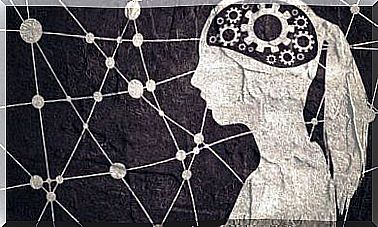Appreciating What We Have Is The Best Form Of Gratitude

Various studies have shown that showing gratitude offers numerous benefits for our physical and psychological health. It pays to stop for a few minutes a day to appreciate what we have.
Every day we wake up and our routines flow in a more or less organized way. Very often, everyday life passes by sheer inertia, full of haste, problems and very short-term goals to accomplish. In other words, far from appreciating what we have and showing our sincere gratitude.
We have little time left to think about the dreams we had in the past, crushed as we are by the obligations of the present. We develop frustration because we fail to reach our goals, because we fail to reach the set and desired horizons. The desire to improve our lives and that of the people around us lives in us, yet we tend to rest on our laurels.
We would like to carve out those few hours a day in which to do some physical exercise, meet some friends or devote ourselves to our favorite hobby, yet we do not dedicate even a little time to the healthy exercise that consists in appreciating ourselves.
Let’s find out what physical and psychological benefits come from being able to show gratitude for what you have.
Appreciate what we have
In our culture, gratitude is a term usually associated with an often annoying obligation to someone. But gratitude is much more than that, it is a state of mind that can be exercised.
Thank those who have helped you, even those who have complicated your life, because they have created an obstacle that has taught you something. Be grateful for gifts and flaws. Give thanks for what you have and for what you have lost, but that it has given you the opportunity to rebuild a better version of yourself.
Let’s see what are the benefits of cultivating gratitude and how it is possible to develop this attitude, which has been thoroughly studied by positive psychology. Because it is a quality that can be acquired.

Gratitude and science
Several studies conducted by various research teams at the California Institute of Integral Studies have come to surprising conclusions regarding the concept of gratitude. Developing this state of consciousness and experiencing frequent gratitude literally changes the molecular structure of the brain.
When we feel grateful, we activate the brain areas responsible for moral cognition, feelings, and the reward system. The prefrontal cortex is activated, involved in the planning of complex cognitive behaviors, in decision-making processes, in social behavior and in the expression of personality. The anterior cingulate cortex is also activated, responsible for emotions and empathy, as well as increasing activity in the gray matter.
Appreciating what we have, how does it affect us?
The studies, which involved various people undergoing gratitude tests for several weeks, yielded very positive results. The activation of the aforementioned brain areas generated greater well-being of the participants, at various levels.
The subjects experienced fewer health problems in general, while the degree of anxiety and depression decreased. There was also a considerable increase in their productivity, due to better sleep quality. Ultimately, it seems like appreciating what we have and being thankful is a practice that helps us feel healthier and happier.

Some ways to activate gratitude
Wake up every day showing appreciation for what you have. Recognition is the starting point for gratitude. Often, the “normalization” of what we have ends up making us believe that it is our obvious right, even when it comes to the product of our effort.
In this sense, what we do not have can motivate us, but it must not become a reason for not appreciating what is already in our life. This concept is closely related to our self-concept and the emotions we experience. Gratitude, therefore, is one of the most fertile sources of positive emotions, so it is important to cultivate it.
A good exercise to stimulate the sense of gratitude can be to write a letter or a message to a person who has helped us in the past; take a moment to think about where we would like to extend our gratitude today or write a journal in which to write down three things to be grateful for. In other words, they are little routines that can remind us of the importance of appreciating what we have.









